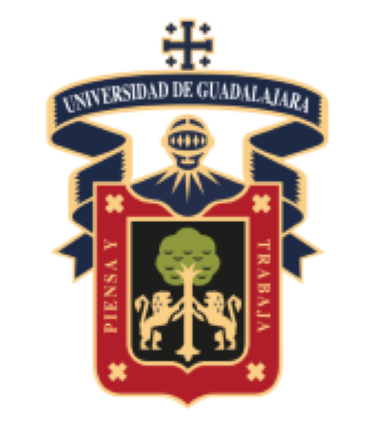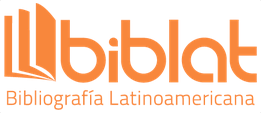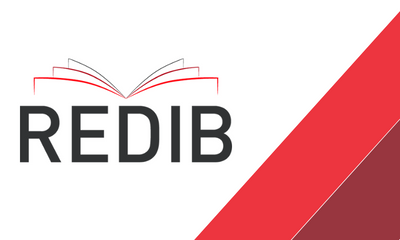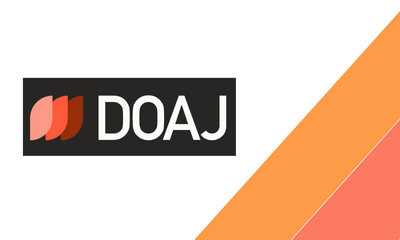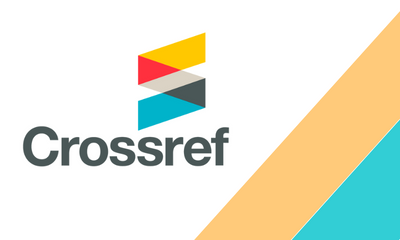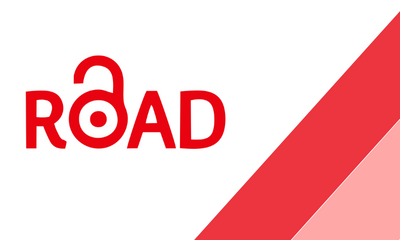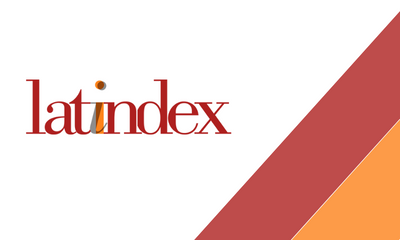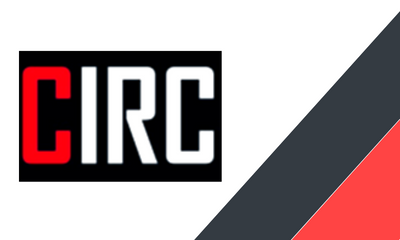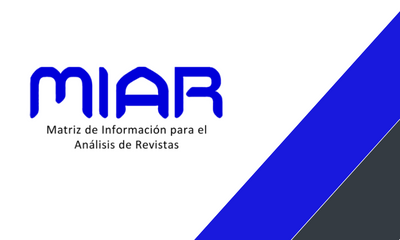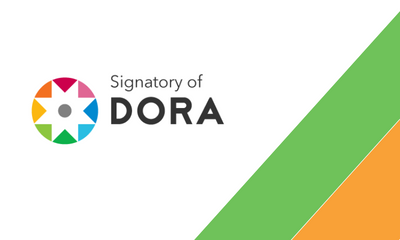Open Access and Codes of ethics
Editorial Policy
The fundamental pillar of InterNaciones journal's editorial policies is to adhere to "diamond" type open access, in order to guarantee that all our scientific and academic publications are available online, free and immediately accessible.
We appeal to this open access scheme to communicate, promote and enhance scientific and academic progress, through the use of the Internet, of research results, to make public investments more profitable and effective by allowing knowledge to be accessible to anyone. person, anywhere and at any time. The above warns that open access democratizes the scientific community and makes it possible for advances not to depend exclusively on institutions with the economic capacity to access the latest published knowledge. It also seeks to expand the audience of researchers, resulting in greater recognition of their findings. On the other hand, there are more possibilities of obtaining readers, potential collaborators and receiving more citations for your publications.
This implies that any user has the possibility of reading, downloading, copying, distributing, printing, searching or using the articles available on the platform for any legal purpose, without having any economic, legal or technical obstacles, beyond those related with Internet access.
In this sense, authors have control over both the integrity of their productions and the right to be recognized and cited in a pertinent manner when their works are reproduced or distributed. Likewise, we point out that within the repositories of which InterNaciones is a part (you can find the indexes, repositories and directories of our journal by clicking here) we are included in DOAJ (Directory of Open Access Journals), which is the most important repository of journals of open access.
Therefore, InterNaciones only retains the publication rights of the works, with the purpose of promoting the reuse and self-archiving of its articles in databases, repositories, directories and international information systems.
Open Access Politics
All content hosted by InterNaciones Magazine is freely available to the public. Consequently, InterNaciones' editorial policies are aligned with the open access initiative, which adhere to Creative Commons guidelines (attribution rights and non-commercial).
Therefore, InterNaciones Magazine does not charge or pay any economic amount to authors for any aspect of the editorial flow (evaluation, proofreading, editing, publication and distribution of articles).
Likewise, InterNaciones Magazine is committed to the dissemination of published articles in indexing services and open access repositories.
For this reason, any user may read, download, copy, distribute, print, search and link to the complete texts of this magazine, as long as it is for an academic purpose and the original source of publication is cited, hosted under the Creative Commons CC BY-NC-SA 4.0 license https://creativecommons.org/licenses/by-nc-sa/4.0/.
Codes of Ethics for Authors
Due to the scientific and academic nature of InterNaciones Magazine, it is intended to observe the guidelines based on the codes of the Committee on Publication Ethics (COPE), established in 1997, with more than 12 thousand affiliates worldwide, available at https://publicationethics.org/ for those who work as reviewers, authors and editors of the magazine.
Regarding authorship:
If applicable, it will be the responsibility of the authors to assign each participant the corresponding role (author, co-author, assistant, collaborator with mention or acknowledgement in the text, among others) and indicate it to the Editor in a timely manner. Contributors involved should resolve authorship issues before submitting their manuscript for review. All contributors listed as authors are responsible for the text.
The number of collaborators should be in accordance with the functions performed in the research and preparation of the manuscript, as well as with the requirements of the field of study.
In case of any doubt or comment in this regard, it is recommended to review the COPE resources regarding authorship.
In the event of any dispute over the authorship of a text, the Editor, with the support of the Editorial Committee, may withdraw a text from the evaluation process, reject the submission or remove a published article until the situation is resolved.
Regarding originality and plagiarism:
Authors submitting their contributions to the InterNaciones Magazine must assure by means of a letter of declaration of authorship that their work is original, that it has not been previously published in print or electronically, that it is not being evaluated by another magazine at the same time, and that it has not been shared on any electronic site. By signing, authors agree to have their manuscript reviewed by anti-plagiarism software, such as iThenticate, to ensure the originality of the work.
Regarding validity and credibility:
Any aspect of the research reported must have been conducted in an ethical and responsible manner. Authors take responsibility for their work and its content, and must verify that the methods, data and findings are substantiated and reported.
Code of Ethics for Director/Editor.
Regarding the reviewers:
The role of Director at InterNaciones Magazine is to ensure that manuscripts are reviewed by reviewers who are specialists and/or experts in each published topic. For this reason, the Director will provide guidelines to the reviewers regarding the format of the opinion, code of ethics, submission periods, or any other related matter.
For this reason, every effort will be made to ensure that the opinion adheres to ethical principles with rigor and quality. Likewise, a database of reviewers will be generated periodically for the different issues convened by the InterNaciones Magazine, whose main purpose will be to reflect a community in accordance with the magazine's editorial policies and the current topics in the field. It will request support from the members of the Editorial Committee for the assignment of reviewers.
Regarding contributions and manuscripts:
For InterNaciones Magazine, the role of Director and/or editor assumes the commitment to accept or reject any manuscript or contribution for publication, taking as criteria the importance of the article, its contribution to the field, originality, clarity, and relevance.
In the event that inappropriate conduct is detected, the Director and/or editor’s actions will be guided by COPE's codes and flow charts.
Therefore, the publication or not of any contribution or manuscript received on the InterNaciones platform will be the decision of the Editor of the magazine.
Regarding confidentiality:
The Director and/or Editor, together with his/her work team, undertake not to disclose any information related to the contributions received for publication to persons other than the members of the Editorial Committee, the authors or reviewers, guaranteeing the principles of honesty and intellectual integrity during the entire editorial flow process and after the article is published.
Likewise, respect for double-blind peer review will be privileged, in order to ensure the elimination of any indication of authorship in the files of both authors and reviewers.
It should be added that an exception is made for institutional affiliation, e-mail, ORCID identification number, and other information that the authors request to be included in the text of the published articles, while the personal information of the authors will be handled as confidential.
Regarding the time of delivery of the opinion:
If the reviewer feels qualified to review a manuscript, he/she should agree to review it only if they feel capable of submitting it in the time requested (four weeks maximum). The reviewer should inform the magazine if they are unable to deliver the review on time, or if they need to request an extension.
In the same way, if they are unable to review the text they are invited to evaluate, they may make some suggestions for reviewers, considering their expertise and without any personal consideration or intention that the manuscript will receive an evaluation (positive or negative).
Code of good practice for Technical Editor.
The role of editorial/technical assistant supports the technical and editorial actions and decisions required by the Editor-in-Chief or by the InterNaciones Editorial Committee. Thus, the assistant's functions are based on the following activities:
a) Manage the operation of the OJS 3 (Open Journal System) platform.
b) Support and attend to administrative, editorial and any other requirements and doubts related to the handling of the OJS manager with authors, reviewers and the rest of the InterNaciones community.
c) Represent the technical contact figure with the authority figures and instances of the University of Guadalajara related to the edition of quality scientific magazines.
d) To operate and oversee the editorial management process (reception of articles, response to authors, contact with reviewers, publication of the current issue).
e) Attend to any action within the scope of the technical editor's competence.
Conflict of interest.
Regarding the role of Director/Editor:
The role of Director and/or editor of the InterNaciones Magazine is committed to inform readers of the steps taken to ensure that the contributions of the members of the Editorial Committee or the editorial team published in the magazine received an impartial and objective evaluation, as well as to declare any possible conflict of interest in the management of an editorial process due to their institutional affiliation, ethical stance, or personal, family or work relationship.
Likewise, a commitment is made not to use information on any manuscript or contribution for their own research, without the prior consent of the author.
Regarding the reviewers:
Reviewers can accept to review or evaluate a manuscript as long as there is no conflict of interest. In case you recognize the authorship of the work, they must notify the editors via e-mail and refrain from reviewing it.
Regarding the authors:
Authors must explicitly declare that there is no conflict of interest that has influenced the interpretation of the results shown in their work.
Protocol for handling complaints.
InterNaciones Magazine will accept complaints from authors, as long as they are well-founded.
This implies that the protocol for dealing with complaints will be based on COPE guidelines and flow charts, as well as on InterNaciones internal regulations.
In no way will the identity of those who serve as examiners or reviewers in the complaint resolution process be revealed. Any complaint about an evaluation process will be addressed as long as the author identifies possible errors in the review of the text, but the ability of the reviewer will not be questioned.
In this sense, any complaint should be addressed to the Director and/or editor with all the necessary evidence and arguments pertinent to the case. For this reason, it is possible to request support from the Editorial Committee or any of its members who are experts in the subject of the article in question.
Approximately, any complaint referred to the InterNaciones platform will have a response within a period of three months.
Attention and resolution of malpractice.
For the attention and resolution of any case in which the editorial team, the Director and/or editor, the reviewers or the readers detect any malpractice, the flow charts proposed by COPE will be used as a support and reference resource, adapting them to the structure of the magazine, in order to address the accusations as long as they are substantiated and evidence is provided.
The following aspects are considered as bad practices in authorship: plagiarism, self-plagiarism, previous publication of the same material, falsification of data and research results, among others.
Based on the above, the process begins with the Director and/or Editor of the magazine, who will notify the indicated author to inform them of the specific case and request a response to the allegation, without disclosing the name of the person who made the allegation. If a satisfactory response is not received, an investigation will be carried out.
In the same vein, the case will be brought to the attention of the members of the Editorial Committee, who will collegially make a decision based on the evidence provided and the severity of the case, which may lead to the withdrawal of the article from the review or editing process, or the permanent withdrawal of the article or contribution published in the magazine's platform.
If the matter is serious and involves a violation of the law, the fault will be consigned to the Office of the General Counsel of the University of Guadalajara, from where the corresponding process will be determined.
If it is essential, necessary and/or useful for the scientific community, the support of Universities or Research Centers of the investigated author may be required to inform them about the case, as well as to notify the corresponding governmental agencies (in Mexico’s case, the CONAHCYT).
In order to prevent and adequately resolve any situation of plagiarism, InterNaciones Magazine has implemented a detection system based on iThenticate software, through which all articles are reviewed before being accepted for publication, whose purpose is to identify the extent of similarity with other contributions and that the information cited is properly attributed to its original authorship.


